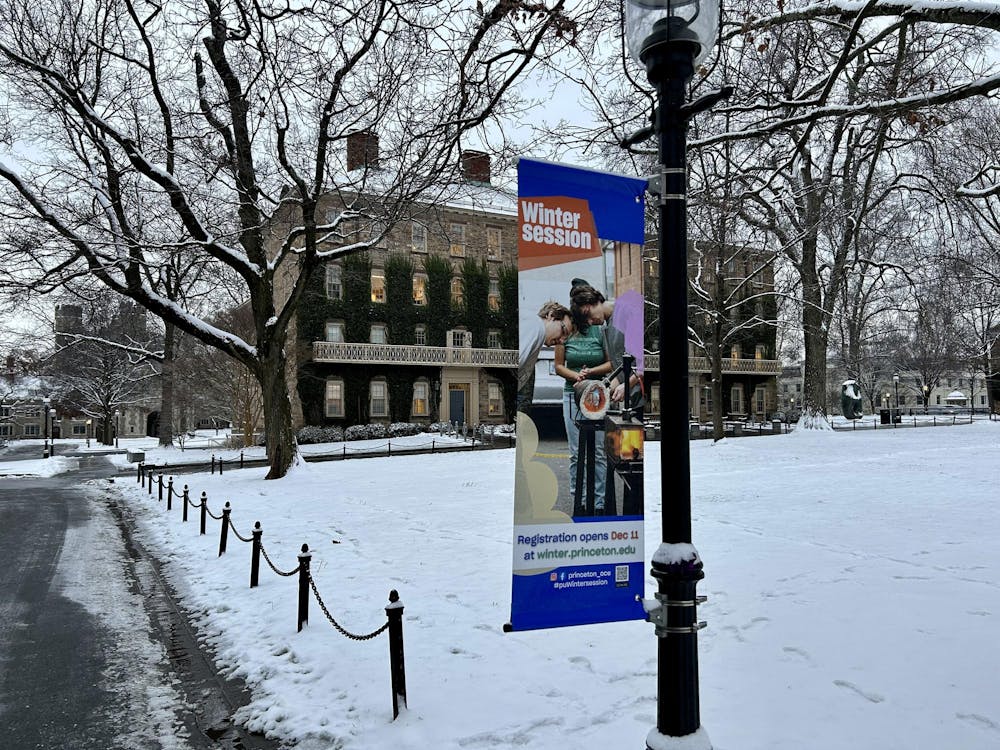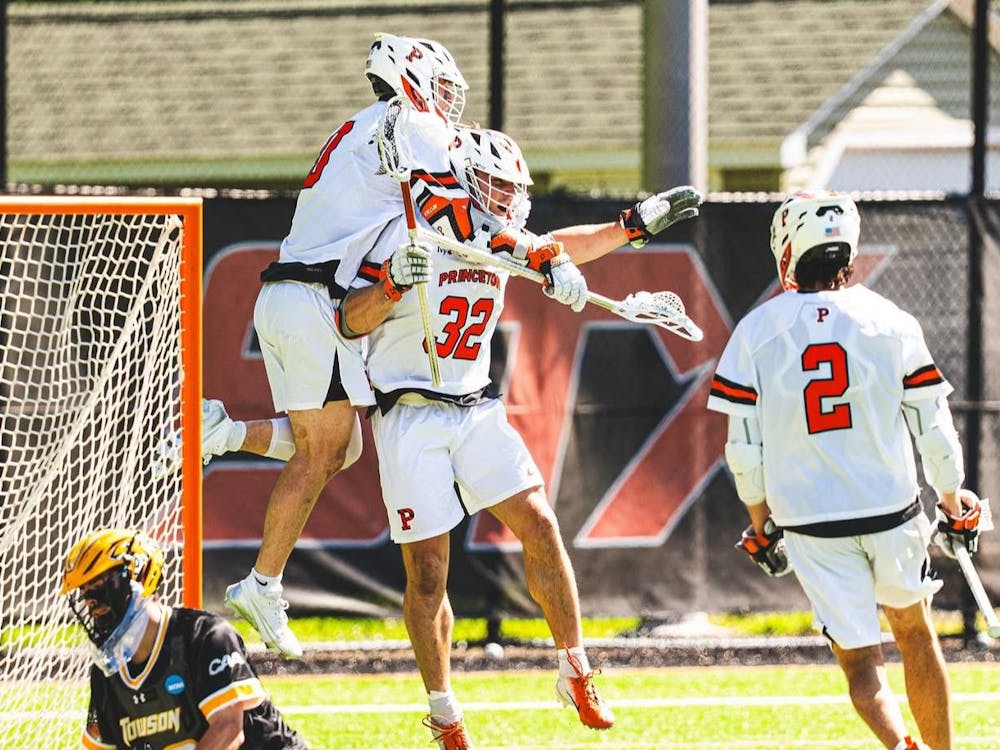Wintersession has become increasingly popular with graduate students. For a myriad of reasons, ranging from partnerships with Graduate Student Government (GSG) to opportunities for community building to free dining hall meals, graduate student registration for Wintersession is up by over 30 percent.
As of Jan. 10, 1,359 graduate students had registered for at least one Wintersession event, an increase from 1,032 registrations at this point in the month last year. This year, the registration total represents 42 percent of enrolled graduate students, and is projected to increase to 1,600, according to numbers provided to The Daily Princetonian by the Office of Campus Engagement (OCE).
“Wintersession is the time of the year I feel the most connected to campus and the community,” Emily Miller GS, a graduate student in the Department of Population Studies aiming for a joint degree in social policy, wrote in a statement to the ‘Prince.’
Miller has served as a staff writer for the Prospect.
The increase over the last few years has been dramatic. In 2021, only 316 graduate students signed up for Wintersession; in 2022, the number was 808. Last year, there were 1,375 graduate registrants by the end of the two-week Wintersession period.
According to Judy Jarvis, Executive Director of the OCE, the rise in graduate registration is aided by OCE’s partnership with GSG leaders and Graduate School administrators. This year, the office also addressed graduate students’ concerns that they would be pressured to lead undergraduate-only sessions or not be allowed to join an offering as a participant.
“As graduate students saw that they had the freedom to choose whether they wanted to lead offerings or attend offerings or both, they became increasingly enthusiastic about participating,” Jarvis wrote in an email to the ‘Prince.’
Driving this increased popularity, perhaps, is that if any student signs up for a Wintersession program, they receive a free meal plan for the two-week period.
“One of my favorite aspects [of Wintersession] is the free meal plan, [which] mean[s] that it is easy to take a break and socialize with my department … [and] friends from disciplines from philosophy to chemistry,” Miller wrote. “Wintersession structurally lets these intercohort and interdisciplinary conversations happen because everyone has to eat,” she added.
Whereas all juniors and seniors are entitled to two free meals in residential college dining halls each week regardless of their meal plan, graduate students only receive six free meals per semester, which apply only to Graduate College. This disparity between undergraduates and graduate students was a key issue in the recent election for vice president of the GSG.
Han Xu GS, a graduate student in the Department of Computer Science, wrote in a message to the ‘Prince’ that “it [is] very helpful to get free meal[s] just by attending a one-hour event,” especially for students who are not on a regular meal plan and typically cook for themselves.
Among graduate students, the most popular offerings included “Laser Tag,” “Introduction to Machine Learning,” and “Unleash Your Inner Artist: Flower Arranging,” according to OCE Associate Director Ohemaa Boahemaa.

Jarvis wrote that “on average, graduate students have signed up for five offerings each, for a total of 7,162 workshop, event and/or trip sign-ups.”
Moreover, 1,595 undergraduates have signed up for one or more offerings, making Wintersession an experience that “undergraduate and graduate students do in close to equal proportion on campus,” according to Jarvis.
“It’s really exciting to me that the Wintersession we have built makes clear … that it is for both [undergraduate and graduate student] groups equally, and that there is lots for both groups to enjoy, learn, and benefit from,” Jarvis added.
For many students, Wintersession provides an opportunity to connect with other students, explore interests, and engage in new activities such as mental health journaling, hot printing, winter hiking, and live-action fantasy battle-gaming. Now in its fourth year, Wintersession is more popular overall than ever before, with additional spots added later on to meet increased demand.
“Most graduate students are around because we live here, which means that we benefit from all this extra programming and the spirit of Wintersession bringing the different groups of Princeton together,” Miller said.
Jianzhu Yao GS, a graduate student in the Department of Electrical and Computer Engineering, wrote in a message to the ‘Prince’ that Wintersession provides graduate students with opportunities learn everyday life skills, interact with cross-cultural and interdisciplinary topics, and “make friends from different departments that share the same hobbies.”
Given that Wintersession occurs during winter break, “students also have plenty of opportunities to get in touch with things they don’t have time for during the busy semester,” he added.
Kirstin Bode GS, a graduate student in the chemistry department, noted that Wintersession is “a unique way to connect with the faculty, staff, and other graduate students,” allowing for community building outside of the academic year.
As Wintersession meals promote social interaction and bonding, graduate students have also taken up the possibility of leading workshop sessions.
Bode is running a session called “Tie Dye Tote Bags,” a workshop centered around tie-dying, one of their hobbies.
“It’s important to have events that bring a little joy to people’s lives,” they wrote. “I’m hoping that [the participants] get a chance to relax and make something that they’ll be able to use in their everyday life.”
Miller, a second-time Wintersession facilitator, was inspired by a previous “Around the World in 80 Beers” session to lead “Intro to Wines,” which consists of three two-hour sessions and focuses on wines across the Americas, Europe, Oceania, and Africa. She noted that the workshop’s design was influenced by her experience in precepts. As participants are required to be 21 and older, about 60 percent of her class is graduate students.
“Last year, it was about 45 percent graduate students,” she wrote. ”I think word has spread about Wintersession in the past couple of years … people were talking about Wintersession [last] fall semester and there was already some excitement.”
Wintersession runs from Jan. 15 to 28. Students can register for events on the Wintersession website.
Louisa Gheorghita is a staff News writer and head Photo editor for the ‘Prince.’
Please send any corrections to corrections[at]dailyprincetonian.com.








